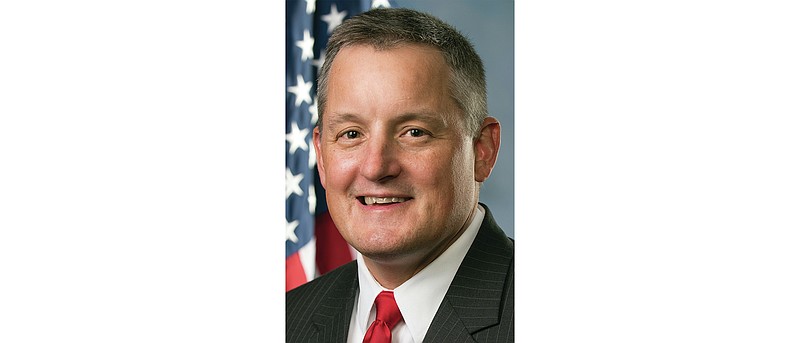WASHINGTON -- When the U.S. House of Representatives passed its energy legislative package last month, lawmakers knew the measure's future was bleak.
House Republicans rallied around the Lower Energy Costs Act last month, legislation that would increase domestic energy production and streamline the permitting process for projects, yet Democratic leaders in the nation's capital rebuked the measure. President Joe Biden threatened to veto the bill if it arrived at his desk, and Senate Majority Leader Chuck Schumer, D-N.Y., declared the bill was "dead on arrival" in Congress' upper chamber.
As House Republicans' attention on the debt ceiling has heightened, it has not meant lawmakers have walked away from trying to pass an energy package during the current Congress. The persisting interest is clear in the House GOP's debt limit bill that lawmakers unveiled Wednesday. Amid provisions to cut federal spending and raise the debt ceiling is the Lower Energy Costs Act.
"Our proposal would restore American energy leadership, make it easier to build things in America, make us less dependent on China, and bring jobs back to America," House Speaker Kevin McCarthy, R-Calif., said during a speech on the House floor.
The Lower Energy Costs Act would require federal agencies to follow policies directed at increasing fossil fuel production, such as quarterly onshore and offshore lease sales involving federal lands. The proposal additionally narrows the scope of environmental reviews for energy projects. Republicans have tied the proposal to growing global energy demand for fossil fuels.
Rep. Bruce Westerman, R-Ark., played an instrumental role in drafting the Lower Energy Costs Act. The House Natural Resources Committee -- which Westerman presides over as chairman -- considered multiple bills incorporated in the final measure. Westerman told the Arkansas Democrat-Gazette that he did not suggest inserting the energy package in the debt ceiling legislation.
"I think that would have seemed self-serving had I pushed for HR 1 on the debt limit package," the congressman from Hot Springs said with a chuckle. "It was our conference and other members who said, 'This is important enough, we need to include it with the debt ceiling.' I'm totally supportive of that."
The debt limit plan additionally would repeal clean energy tax credits included in last year's Inflation Reduction Act.
McCarthy called for the White House and congressional leaders to negotiate a debt ceiling deal "right now." During an address in Maryland, Biden called on Congress to prevent a default, adding Republicans want his administration to agree with "all of these wacko notions that they have."
The announcement of the debt ceiling proposal followed a House Natural Resources Committee hearing with Interior Secretary Deb Haaland. Her appearance before the committee -- Haaland's first since June 2021 -- focused on the Department of the Interior's $18.9 billion budget proposal for the next fiscal year. Republicans additionally pressed Haaland on the Biden administration's support for transitioning from fossil fuels to clean energy.
Haaland, a former House member, told committee members that oil production on federal lands is at an all-time high, but she additionally emphasized the importance of addressing climate change, which she described as "the crisis of our lifetime."
"I know that President Biden is committed to energy independence for our country," she said. "That's the reason we are going gangbusters on our clean energy transition. Those are viable sources of energy that we are working to lift up."
While speaking to the Democrat-Gazette, Westerman noted the timing of Haaland's appearance, pointing out the Biden administration's approval of the Willow project in March. The oil project involving federal lands in Alaska could produce up to 180,000 barrels daily once complete.
"I think they realize there has to be more oil and gas production, yet they want to claim also that climate change is the biggest crisis in the history of the world," he said.
"There's some inconsistency there in their thought process. It's like they don't want to admit they are attacking American energy. In front of the camera, they're talking about all the things they are doing to promote American energy, but behind the scenes they're taking actions to actually destroy American energy production."
Haaland told committee members the department is committed to working with Congress on energy solutions, but Republicans during the hearing said lawmakers have struggled to get inquiry responses from the agency. Westerman asserted the Department of the Interior failed to respond to 80% of requests during the previous Congress when Democrats controlled both chambers.
"At the end of the day, I can issue subpoenas," Westerman said after the hearing.
"I'm trying to give them time to actually answer our questions because I don't really want to go down that road, but we have a job to do with oversight. If they don't start answering our requests, we can start subpoenaing information from them."

